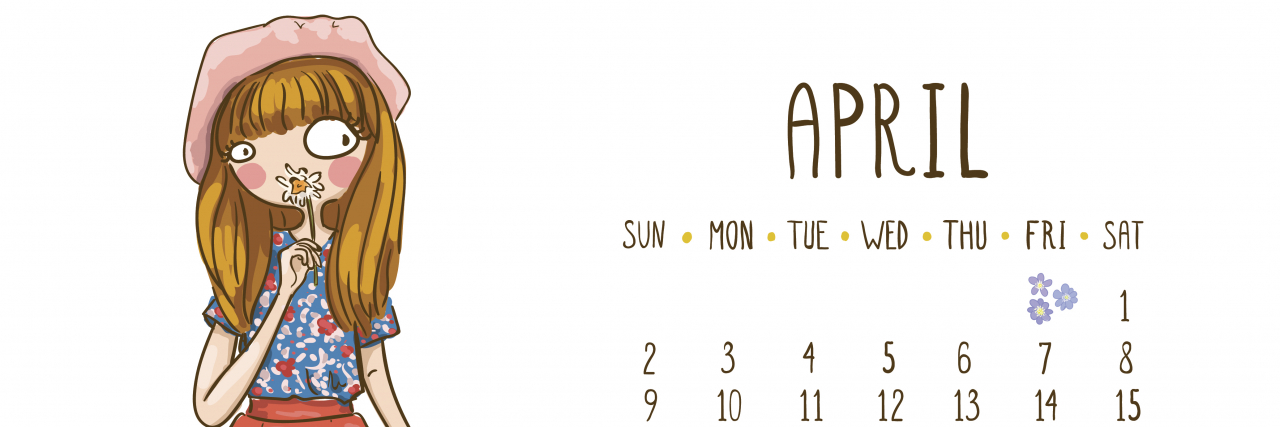It’s officially Autism Awareness Month. The purpose of this time of year is to provide recognition of autism to people who are not familiar with the condition. This month may be exciting for some people with autism and parents of children with autism, but I have a lot of opinions about this time of year. Even though I was diagnosed with the condition at the age of 12, I was always annoyed with Autism Awareness Month and still have doubts about it today.
One of the reasons I don’t like Autism Awareness Month is because of how some people treat it. For example, they “offer support” by posting hashtags and memes. To me, the hashtags and memes convey an illusion of autism rather than the reality. Many people don’t think about what autism really is. My social media is flooded with articles, such as “Irmo girl agrees to go to prom with Edisto High School student who has autism” and “This student withdrew from prom court to clear the way for his friend, who has autism, to win prom king.” To me, the writers of the articles are trying to make the “girl” and “student” who “withdrew from prom court” look like heroes just for being decent human beings to people with autism. People with autism are human beings and have the same rights to be treated with kindness as everyone else.
Another reason I have doubts about Autism Awareness Month is that I feel the pressure to be a “positive” inspiration to other people. Yes, it’s wonderful to share your obstacles and how you overcame them, but does it mean I have to dismiss my own feelings? Why am I an inspiration? Is it because I have autism and still exist? I have heard, “I don’t think I could actually do it if I was in your place” countless times. Honestly, it is hurtful and invalidating. Sometimes, I feel like I’m not allowed to discuss my low self-esteem and exhaustion associated with autism. I’m tired of others using this condition to alleviate their circumstances by saying, “Oh, at least I don’t have autism” or “I don’t have a child with autism.” I have no interest in being a reminder to others that things could be worse. I’m not interested in being used to benefit people who don’t have autism. Why does autism have to be the worst thing in the world? Why do we have to be punished by society for having conditions that we do not ask for?
I will always do my best to listen to my loved ones, despite my troubles with interpretations and sensory overload. I try to socialize as much as I can, despite being anxious in random places during random times. I’m not “tough” for having this condition. Nobody should be defined by their hardships. Instead, what matters is the choices we make. I’m not crediting my condition for making me strong. My autism made me cry and made me feel weak. I’ve felt like I wasn’t good enough. But I decided to be strong. I decided to be a kind person. I decided to earn a college degree. I decided to pursue a career. I did all of those things despite my challenges and shortcomings.
Another reason why I don’t like Autism Awareness Month is that I still feel marginalized. I feel excluded because I am a woman with that condition. Men with autism are more talked about than women with autism, just like men are diagnosed more than women. According to doctors and researchers, it’s harder to diagnose females because they are more likely to “mask” (which is hiding “autistic” traits to avoid judgment and prejudice) than boys. I was not the exception. I have been told that I don’t “seem to be autistic” because of autism being considered a “male condition” and due to my ability to “mask.” I can convince people that I am neurotypical by making eye contact, imitating appropriate body language, and bottling up “stims.” I wonder why I would even want to, or why I feel that I have to mask since masking is exhausting. Lots of females with autism went undiagnosed up until their 40s, even 50s, while males are often diagnosed when they are still toddlers.
My other issue is the word “awareness.” You can be aware of a condition and still have prejudice. Being aware of autism is like paying attention to a classmate. You’re either going to be kind to your classmate or be a bully. By being aware of autism, you’re either going to discriminate or accept. As Emily Forsyth mentions, there is a difference between awareness and acceptance. Awareness is a start, but it’s not enough.
I don’t presume to speak for all people on the spectrum. This is based on my journey and experiences. Although April is a month devoted to autism, I do not see why people cannot continue to educate themselves throughout the year. Any time is a good time to educate yourself on a new subject. I hope that Autism Awareness Month leads to not only being aware of the existence of the condition, but further conversations about acceptance, education, and empathy.
Getty image by Salvadorova.

